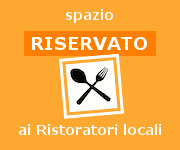Parco Lombardo della Valle del Ticino
www.parcoticino.itLow Environmental Impact Structure - Ticino Park Label
The relationship between agriculture and environment is very complex and continuously evolving. The agricultural production system is based on the permanent interaction with the surrounding environment, from which it draws the necessary resources for the production (soil, factors of production, renewable and fossil energy, etc.).
Therefore, the agricultural activity is characterized by positive or negative impacts on the environment.
A global evaluation approach of the production system gives the opportunity to obtain an analysis of the reciprocal relationships existing among the different factors involved and to highlight the agricultural-environmental "consistency" of the production.
The global evaluation of the production system, when compared with a sectorial analysis or the analysis of the application of certain practices, gives the opportunity to highlight the interactions among the various factors of production (at various levels) and their impact on the environment.
The method introduced by Ticino Park uses and adapts an evaluation method developed in France (DIALECTE) and used also in Austria (ECO POINTS).
This system enables the evaluation of the production processes of the holdings according to criteria enhancing virtuous agricultural practices when compared with the traditional applied techniques.
The global evaluation of the production system is divided into three main themes:
- The diversification of the production, obtaining the highest score (70 points), enables the evaluation of the cultivation - breeding activity structural factors, the choice of the production system, the organization of spaces and livestock breeding structures.
- The rational use of the factors of production (30 points), evaluating for each of them the level of commitment and for some of them the quality of their management.
- The diversification of the activities of the holding (10 points), highlighting the eventual opportunities liked to the agricultural activity and related to the sale and promotion of the products obtained in the holding (direct transformation, presence of a shop, holiday farm, etc.)
List of the operators, grouped according to the typology of activity:







